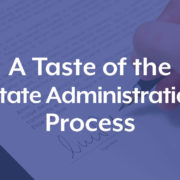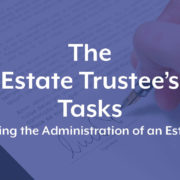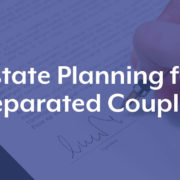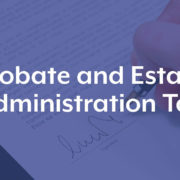Planning for Vulnerable Persons: Protecting Loved Ones Through Trust and Estate Planning
At Rabideau Law, we’re proud to feature a special contribution from Blair L. Botsford, Principal at Botsford Law, as part of their Well-Squared Estate educational series.
In this edition, Blair explores an important topic that touches many families: planning for vulnerable persons — including those with disabilities, illnesses, or circumstances requiring long-term financial care and protection.
Who Is Considered a “Vulnerable Person”?
Vulnerability can take many forms. It may include a loved one with a physical or mental disability, but it can also extend to those facing illness, addiction, financial instability, or age-related challenges.
Proper estate planning ensures these individuals are protected through structured management of assets — even when they cannot make legal or financial decisions themselves.
The Role of Henson Trusts and Disability Planning
One of the most effective tools in disability planning is the Henson Trust — a fully discretionary trust designed to protect eligibility for Ontario Disability Support Program (ODSP) benefits and help to ensure long-term financial stability.
Under a Henson Trust:
- The beneficiary does not have direct access to the trust’s assets and does not have a vested legal right to the income or capital of the trust.
- Trustees have full discretion over distributions, which balances compliance with ODSP rules and the need to maintain flexibility to meet potentially changing needs of the beneficiary.
- Remaining funds are distributed as specified by the trust’s terms upon the beneficiary’s passing.
These trusts, alongside Registered Disability Savings Plans (RDSPs) and Qualified Disability Trusts (QDTs), help families optimize financial security while preserving essential government benefits.
“Optimizing the value of these options is an important part of disability planning, and fully discretionary trusts are the staple solution with respect to preserving ODSP benefits.” — Blair L. Botsford
Capacity and Guardianship: Understanding the Legal Framework
Planning for vulnerable persons also requires understanding capacity — such as the legal ability to make decisions about property, care, or one’s estate.
In Ontario, capacity is task-based, meaning the test for capacity differs depending on the decision. For example, the legal standard for making a Will is higher than that for granting a power of attorney, and both of these are different from capacity to manage property. It should be noted that legal capacity and mental capacity are related but different concepts.
When a person no longer has capacity and there is no valid power of attorney, guardianship may be required. There are two forms:
- Guardianship of Property: Managing financial affairs.
- Guardianship of the Person: Overseeing personal care decisions.
The Public Guardian and Trustee (PGT) acts as guardian of last resort, but family members can apply to take over this role under the Substitute Decisions Act.
Planning for Minors
Parents are not automatically the guardians of their children’s property in Ontario. They can only receive up to $35,000 on a child’s behalf from an estate or trust. For larger amounts, court involvement or a Guardianship of Property application is required.
Establishing a trust for minors in a Will is often the better planning option — allowing funds to be managed responsibly until the child reaches an appropriate age.
Why This Planning Matters
Disability and estate planning aren’t just for families managing current challenges — they are essential steps for anyone who wishes to protect loved ones, preserve assets, and ensure peace of mind.
With the right combination of trusts, Wills, powers of attorney, and guardianship planning, you can ensure your wishes are respected and your beneficiaries are supported with dignity and care.
About the Contributor: Blair L. Botsford
Blair Botsford is the founder of Botsford Law, a boutique firm specializing in trusts, estates, and private client services, with over 25 years of experience.
She is a member of the Society of Trust and Estate Practitioners (STEP) and the Canadian Tax Foundation, among others.
Learn more about Blair’s work and resources at: botsfordlawtep.com/resources
Rabideau Law is pleased to share this educational piece from Botsford Law’s Well-Squared Estate Bulletin as part of our ongoing effort to inform clients about key legal issues that impact property ownership and personal planning.
For more insights and resources, visit:
www.rabideaulaw.ca | info@rabideaulaw.ca | 519-957-1001








